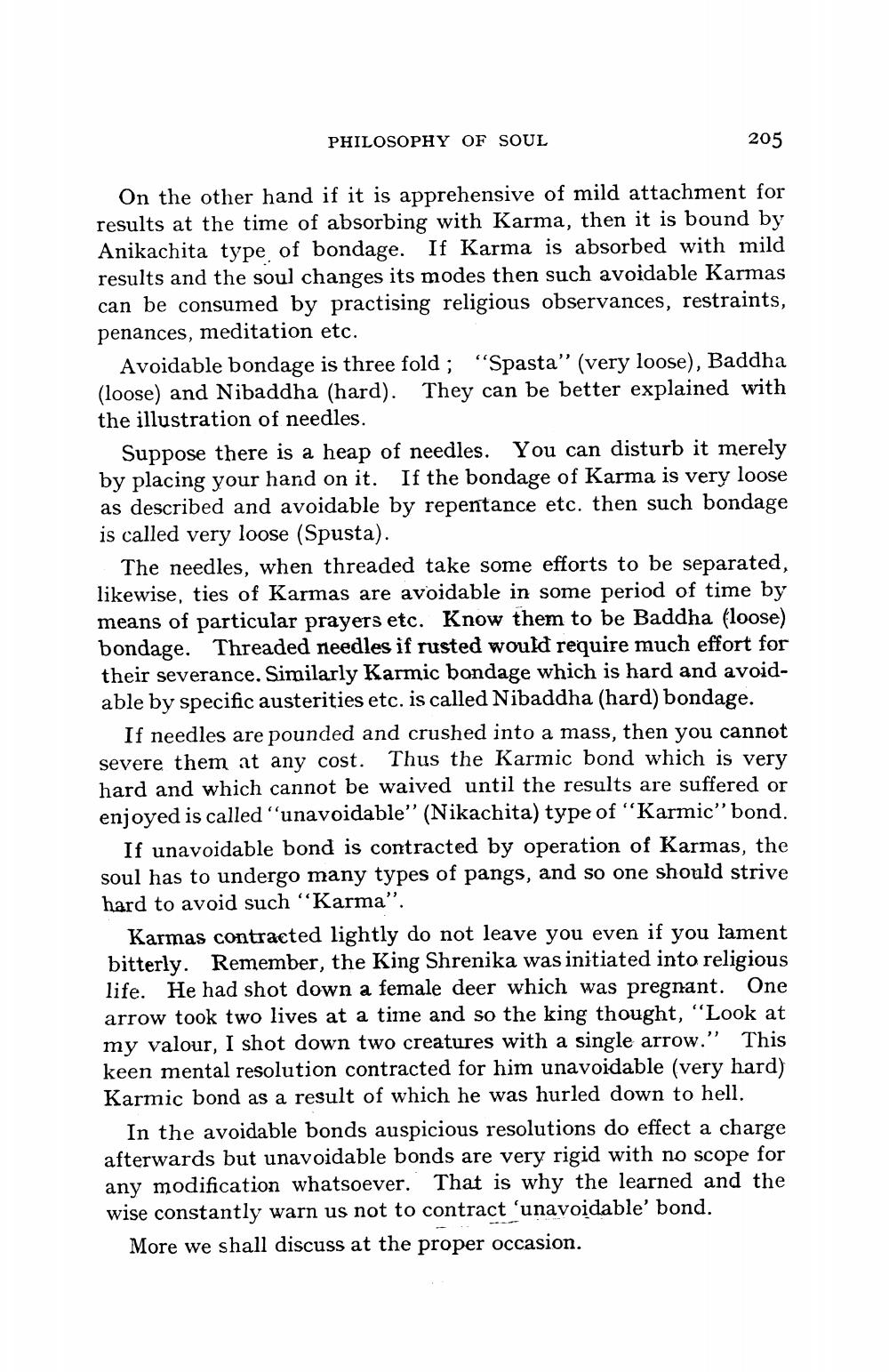________________
PHILOSOPHY OF SOUL
205
On the other hand if it is apprehensive of mild attachment for results at the time of absorbing with Karma, then it is bound by Anikachita type of bondage. If Karma is absorbed with mild results and the soul changes its modes then such avoidable Karmas can be consumed by practising religious observances, restraints, penances, meditation etc.
Avoidable bondage is three fold; “Spasta" (very loose), Baddha (loose) and Nibaddha (hard). They can be better explained with the illustration of needles.
Suppose there is a heap of needles. You can disturb it merely by placing your hand on it. If the bondage of Karma is very loose as described and avoidable by repentance etc. then such bondage is called very loose (Spusta).
The needles, when threaded take some efforts to be separated, likewise, ties of Karmas are avoidable in some period of time by means of particular prayers etc. Know them to be Baddha (loose) bondage. Threaded needles if rusted would require much effort for their severance. Similarly Karmic bondage which is hard and avoidable by specific austerities etc. is called Nibaddha (hard) bondage.
If needles are pounded and crushed into a mass, then you cannot severe them at any cost. Thus the Karmic bond which is very hard and which cannot be waived until the results are suffered or enjoyed is called “unavoidable” (Nikachita) type of 'Karmic"bond.
If unavoidable bond is contracted by operation of Karmas, the soul has to undergo many types of pangs, and so one should strive hard to avoid such “Karma".
Karmas contracted lightly do not leave you even if you lament bitterly. Remember, the King Shrenika was initiated into religious life. He had shot down a female deer which was pregnant. One arrow took two lives at a time and so the king thought, "Look at my valour, I shot down two creatures with a single arrow." This keen mental resolution contracted for him unavoidable (very hard) Karmic bond as a result of which he was hurled down to hell.
In the avoidable bonds auspicious resolutions do effect a charge afterwards but unavoidable bonds are very rigid with no scope for any modification whatsoever. That is why the learned and the wise constantly warn us not to contract ‘unavoidable' bond.
More we shall discuss at the proper occasion.




